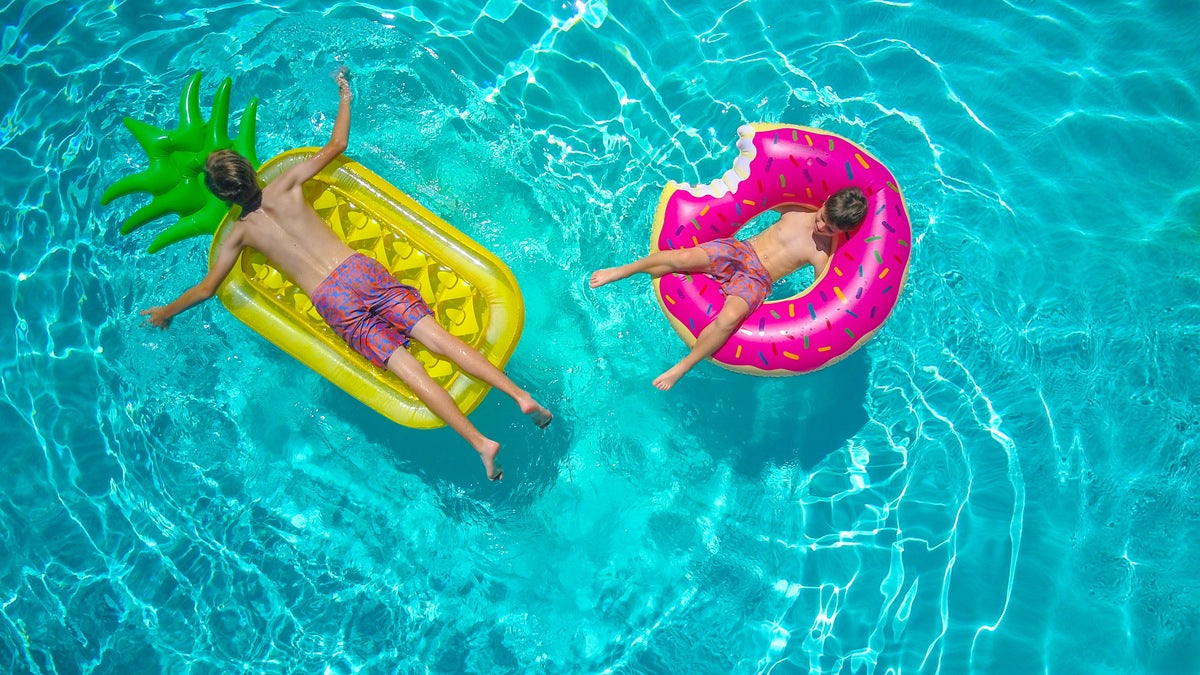
Understanding Pool Chemicals: A Comprehensive Guide
|
|
Time to read 4 min
|
|
Time to read 4 min
Ready to unravel the mystery of chlorine, balancers, stabilizers, pH, shock, and more? While it may seem that you need a doctoral degree to understand pool chemicals, we're here to show you everything you need to know in our easy-to-follow comprehensive guide.
Understanding pool chemicals is something you can do, so let's get started!
First, there is one fundamental rule to adding chemicals to your water: always add your chemicals to water and never add water to your chemicals. If you add water to chemicals, you can cause reactions that may lead to injury. Second, always read the directions before adding pool chemicals to your water.
Now that we've gotten that out of the way, it's important to note that sanitizer is the most crucial chemical you can add to your swimming pool. But you also must have balanced water for your sanitizer to work. For example, you must have the proper pH, alkalinity, and calcium hardness levels. As all of these work together, they may all be when one is out of whack.
In addition, you need chemicals for algae, clearing up your water, and as a stain preventer.
Everything you add to your swimming pool works in unison to ensure your pool is healthy, clear, and safe. So, let's get to it – here are the pool chemicals you need to know about.
You use sanitizing chemicals to kill bacteria and prevent the growth of viruses, algae, and other organic-type contaminants. You do want to keep on top of your sanitizers throughout the pool season to keep a clear, healthy pool. There are several kinds of sanitizers:
Next, you want to make sure you are using an algaecide. These pool chemicals kill algae and prevent it from growing in your swimming pool. Algae in your pool can damage your pool equipment and even cause skin irritation, so algae are better kept at bay.
While sanitizers and shock/oxidizers help with algae, they can't do the heavy lifting independently. By using Algaecide, you keep your pool clear. Using an algaecide approved by the EPA for killing and preventing algae is essential.
Water balancers can help with many issues that may arise in your swimming pool:
If your pH is too low or too high, you can have many issues, but water balancers can help. Keep your pH level between 7.4 and 7.6 for comfortable water that doesn't irritate swimmers' eyes.
These pool chemicals help you have brilliant, clear, and sparkling water. They also help your filter work more efficiently. Water enhancers stop debris before it reaches your filter, making it run better and extending the filter's life.
There are other parts of your pool that you need to keep clean such as your filter, tile, surface, and your pool cover. With cleaners and problem solvers, you can keep everything clean and working its best. For example, you might need one product if you end up with foam in your pool, or you might choose another chemical to clean grime and scale from your pool walls.
While test strips aren't a pool chemical, they are integral to understanding your pool chemicals and what your pool may need. The only way to know your chemical levels is to test your water. You should be testing your pool all the time. Do it before and after you add chemicals. Do it after a rainstorm. And do it after you have high bather loads. And do it several times a week during the pool season.
While it would be great to simply fill your pool and swim every day, there is a different reality. You need chemicals to keep your swimming pool crystal clear, algae and bacteria-free, and ready to swim daily.
Pool chemicals are necessary, and you must pay attention to them weekly. With regular water testing and ongoing maintenance, you can have a pool your neighbors envy! You can use this comprehensive guide to manage your swimming pool and keep it clean and sanitized.
Now that you understand pool chemicals and chemistry, remember how vital top-notch quality pool chemicals are to your pool. Shop Pool Goods for the best pool chemicals on the market, delivered immediately to your doorstep!
You've come to the right place if you're looking for superior pool and spa products shipped to your door. At Pool Goods, we are here for you to help you make every day better in your pool or hot tub with the best pool chemicals and hot tub chemicals!